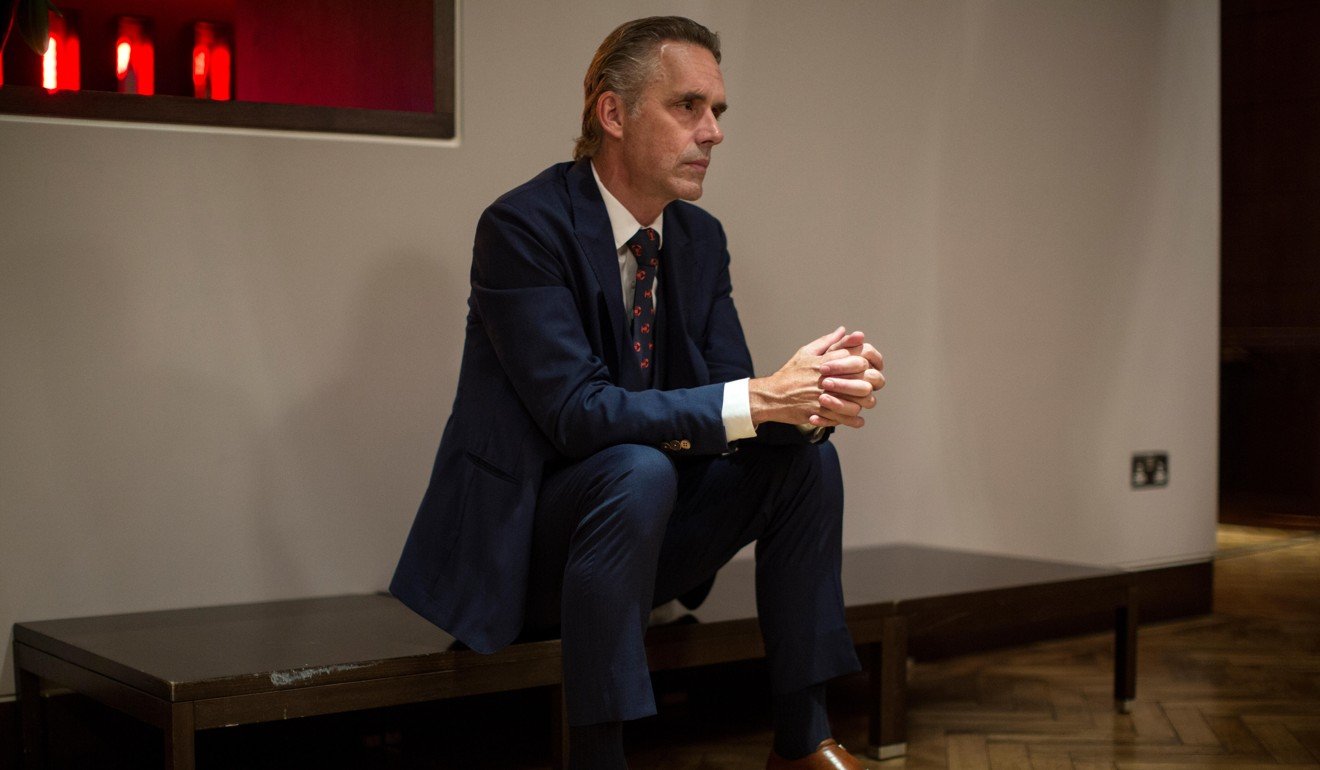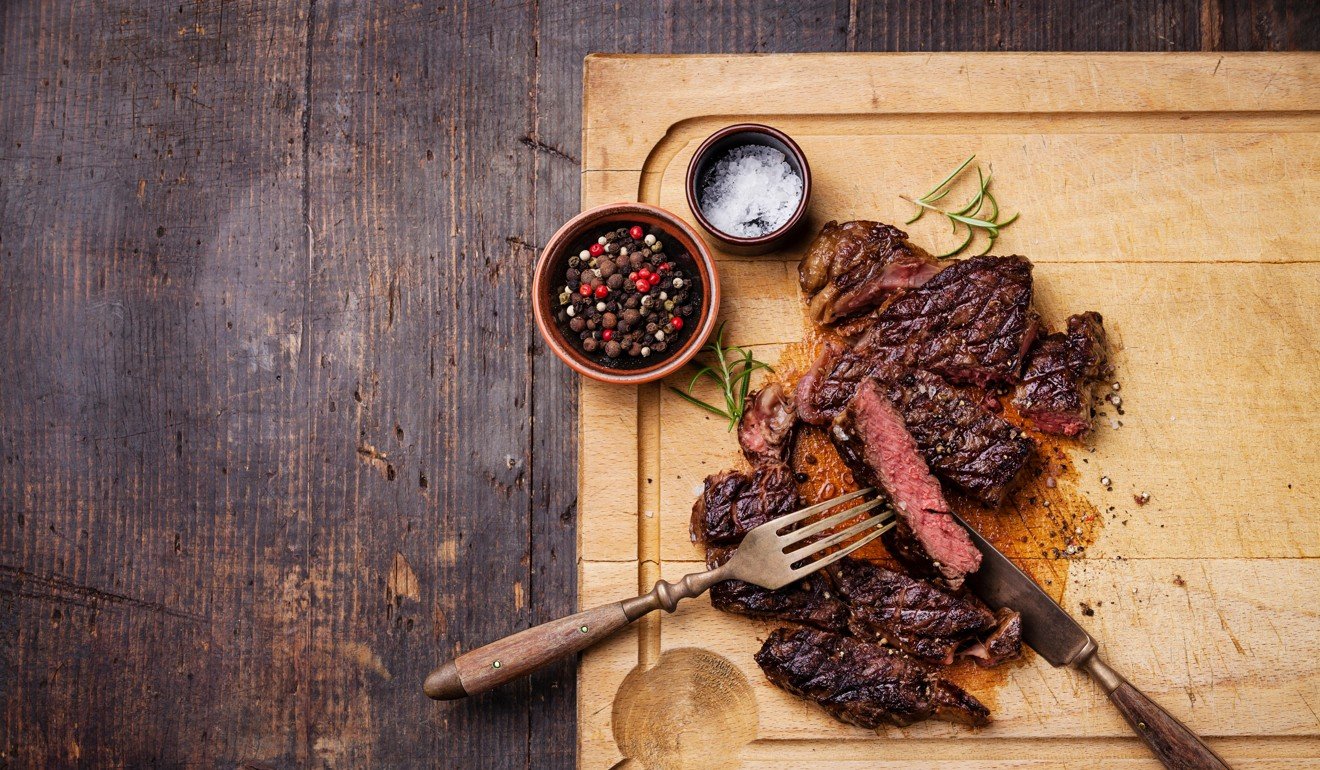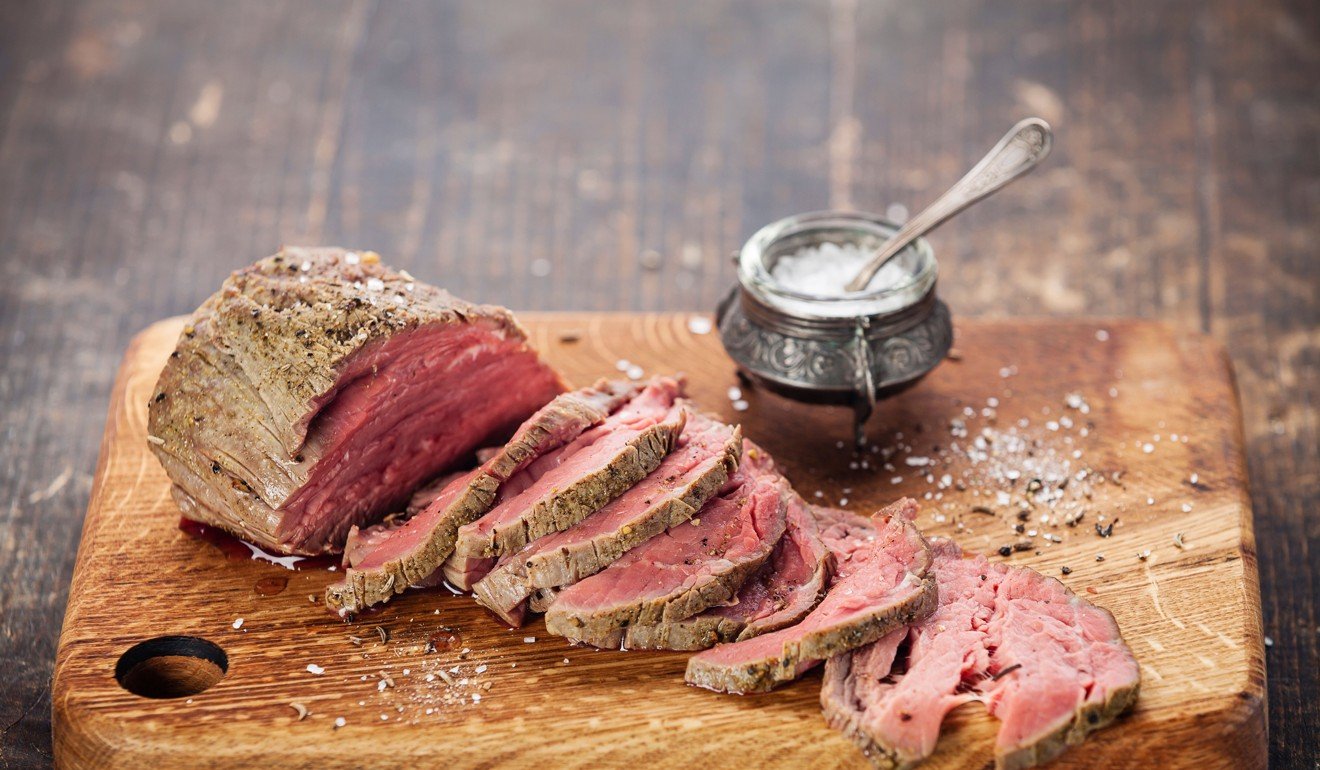
The carnivore diet: energy loss, depression, stink of grease – but hey, you might lose a few pounds
Adam Gabbatt spent six days on a diet of beef, salt and water with the promise of weight loss and pain relief. Instead he felt sick, was constantly tired and all his clothes stank of grease
When I started my carnivore diet, I wasn’t to know I’d started on a journey that would involve rapid weight loss, complete exhaustion and a professor of nutrition telling me I was at risk of scurvy.
It had started innocently. Bestselling Canadian author Jordan Peterson had appeared on the Joe Rogan Experience podcast. The pair discussed Peterson’s self-help book, 12 Rules for Life, which created a stir when it was released in January. Rogan told Peterson how slim he looked. Well, Peterson said, it was because of his new diet.
The best tips for avoiding and combating chronic inflammation
“I eat beef and salt and water. That’s it, and I never cheat. Ever,” he said. He had been put on to the diet by his daughter, Mikhaila, and lost 60lb (27kg). What’s more, he said, his anxiety and depression had lifted.

I had to give it a go. Weight loss? Improved mood? No side effects? It sounded too good to be true.
It was.
Day 1
“I had digestive problems,” says Mikhaila Peterson. “The diarrhoea lasted six weeks.”
I’ve called her up, on the morning of my first beef day, to get some tips. Mikhaila is a 26-year-old who suffered badly with arthritis as a youngster. When she started on the beef-only regimen, her arthritic pain went within two weeks, she said. So did unrelated pain in her wrist, big toe and knees.
After a month and a half, she said, she started to notice her anxiety had lifted, and she saw improvements in short-term memory.
I kick things off with a trip to the supermarket. I buy some beef ribs, some steak and some ground beef. And beef sticks. At home, I load the beef into the fridge. I try one of the beef sticks. It tastes like an extremely dry sausage. It’s not very filling. I eat three more.
I have to meet my friend Nina. She suggests we go for something to eat. She takes us to an oyster bar, which seems inconsiderate, but they do steak tartare. I have beef tartare, plain. She orders oysters and clams, and has two glasses of wine. Her meal looks delicious. Mine does not.

Day 2
It takes 24 hours for Mikhaila’s warning to come to pass. There is only one cubicle in the bathroom at work. Luckily it’s free.
At 11.30 I head out for lunch. A new bar has just opened round the corner from work. It’s not a very nice bar, but they do steak.
Some years ago the UK government warned people – based on evidence from the independent Scientific Advisory Committee on Nutrition – not to eat more than 500g (about 1lb) of red meat a week, to limit the risk of bowel cancer.
During my foray into the world of beef, salt and water, I never heard a rebuttal to the science. One carnivore-focused Facebook group I joined – there are many – talked, however, about “brainwashing forced upon us [at] all levels by doctors, dietitians, governments, schools, media, corporations and religious and spiritual organisations … and vegans … that keep people from their true potential of health and happiness”.
An hour after eating, fatigue washes over me. I go for a sit-down on a sofa in the office and immediately fall asleep. For an hour.
Day 3
I wake up early. My skin is greasy – even greasier than normal – and my hair, clothes and kitchen smell of meat.
Weight loss seems to be one thing people frequently tout about the diet. Mikhaila Peterson told me she lost 10lb in two weeks when she started only eating beef.
I’ve only been on the diet for three days, but I feel less flabby around the middle. Whether that’s the beef, the fact I’m not eating very much, or my mind playing tricks, I’m not sure.
I didn’t particularly want to lose weight on some sort of crash-beef diet, but one thing that intrigued me was the notion that an all-beef diet could cure joint pain. I broke my left collarbone a couple of years ago and dislocated the other one in May. Accident-prone me seems to spend quite a lot of time in pain.
But if anything, my shoulders have got worse. Maybe I’ve just been sleeping in an uncomfortable position, but I’m having to take ibuprofen.
For dinner, I cook my biggest steak on the grill pan. Then I lie down and feel my heart beating quickly in my chest. I fall into an uneasy sleep, and my day ends at 8pm.

Day 4
I am asked to go to Vermont to interview a woman running for governor. I shove some beef sticks in a bag and get a cab to the airport. I fall asleep on the way, and when I wake up, I feel very sad. Nothing has happened to make me feel sad. But I’m exhausted, and I’m feeling sorry for myself.
At the airport there’s been some trouble with the airline’s computer system and I miss the flight.
I am filled with woe and anxiety. I’ve let down the woman I was supposed to interview. My boss is going to be upset. What if I get fired?
My boss does not fire me. I get put on a flight the next day.
I look at a website called Meat Health, which is devoted to carnivorous eating.
“Nearly always, when you start a carnivore diet, you will experience adverse symptoms and side effects,” Kevin Stock, a doctor in dental sleep medicine and the person behind the website, says in a post. “It’s what I affectionately call the ‘trough of despair’, or the ‘trough’ for short.”
Vegan bodybuilder and trainer talks about his diet, shares recipes
Meat Health says eating more meat and drinking more water will help to climb out of the trough.
I shuffle to the fridge and retrieve another steak. I cook it and eat it, joylessly. Then I drink a lot of water. It’s 3pm and I feel ready for sleep. I take a three-hour nap. When I wake the fog of depression has become more of a mist.
A friend has promised to take me out for a steak tonight. We order a 40oz porterhouse steak to share. With nothing else. I have some water with it. This is the first time I’ve also noticed my craving for salt. I sprinkle it generously on every mouthful of steak. I go home and fall asleep immediately.

Day 5
It’s take two for my Vermont trip. Lunch is at a restaurant in Burlington, the state’s biggest city. I have a steak, with nothing.
I interview the candidate for governor, then take a 45-minute sleep in my car. She and I have agreed to go for dinner tonight. The restaurant doesn’t do steak, so I ask for two hamburgers, with no bun, no salad, no sauce and no sides.
I have to explain the diet. “So how are your movements?” someone asks. I haven’t thought about that for a few days. I’ve been too busy sleeping and smelling my clothes to find ones that don’t smell of grease. I think back. There have been no movements since day two.
Day 6
I phone a nutritionist. Lisa Sasson, a clinical professor in nutrition at New York University, had read about the diet already.
“It’s ridiculous. It’s absolutely ridiculous,” she says. “We all know that fruits and vegetables are important. That’s where you get so many of your nutrients: plant-based foods. There’s absolutely nothing here.”
Sasson says the claims from people who say it has stopped pain or eased anxiety are because of the placebo effect.
“You could go on this diet and think, oh, that lump I had does seem smaller. The placebo is very powerful,” Sasson says.
Losing weight gets personal – it’s more than just diet and exercise
I ask about the amazing claims of weight loss.
“Anyone would lose weight. You lose weight on chemotherapy.”
After such a strong rebuke I feel embarrassed to tell Sasson that I’ve been on this diet. I tell her anyway.
“It’s truly lacking critical nutrients, which could have devastating effects,” Sasson says.
“You should know, you sound like you’re English. Look at scurvy. How was scurvy discovered? When people went on those ships and they didn’t have fresh fruits and vegetables, that’s when we knew it was related to vitamin C, which you’re not getting in that diet.”
Sasson says I shouldn’t stay on the diet. “Go out and have a beer and enjoy your life,” she says.
I take Sasson’s advice. I have a lot of beer. I wake up and I feel little better than I did on the beef. But at least this version of feeling terrible came with some joy.

